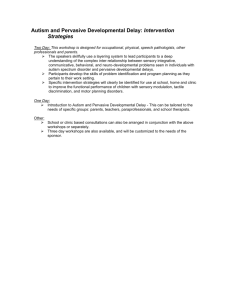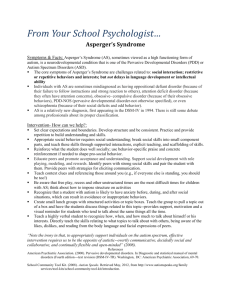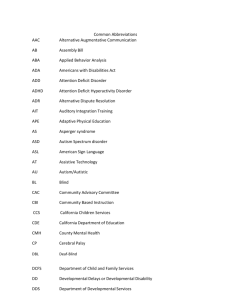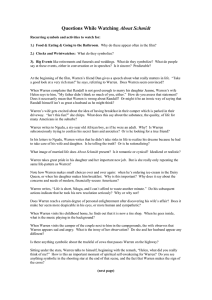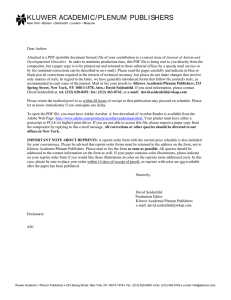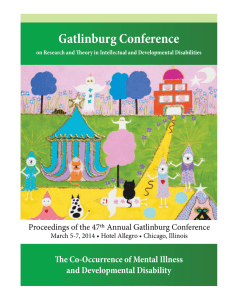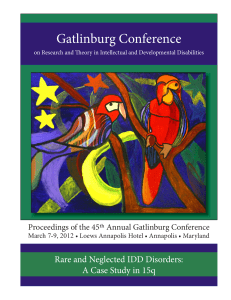Steven F. Warren, Ph.D.
advertisement
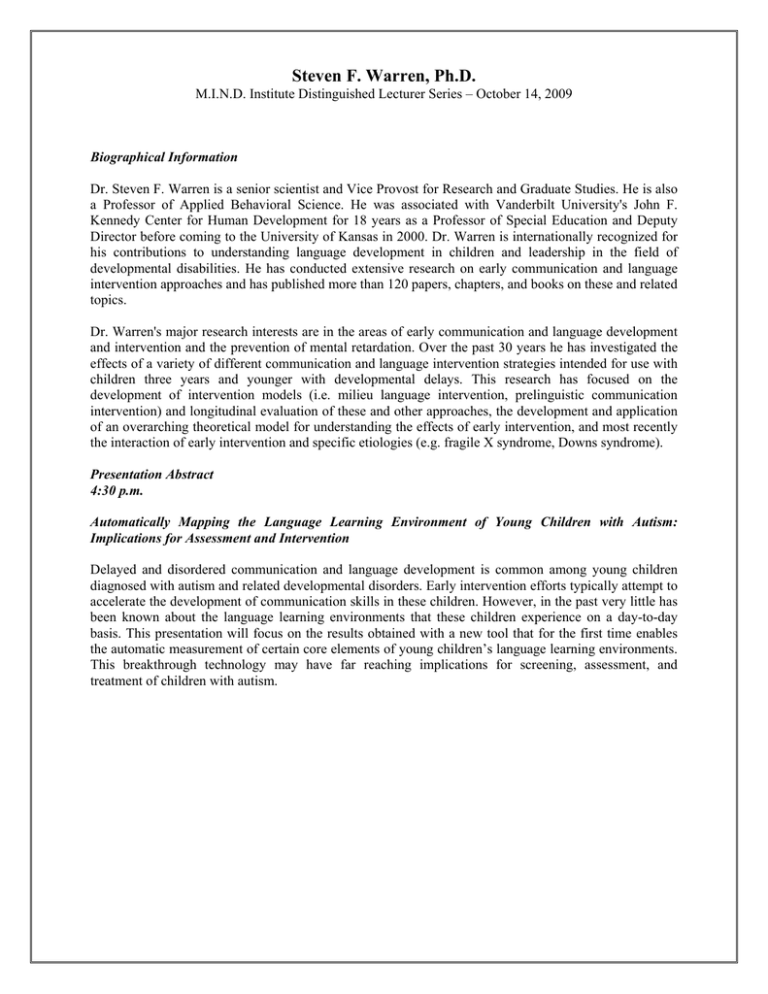
Steven F. Warren, Ph.D. M.I.N.D. Institute Distinguished Lecturer Series – October 14, 2009 Biographical Information Dr. Steven F. Warren is a senior scientist and Vice Provost for Research and Graduate Studies. He is also a Professor of Applied Behavioral Science. He was associated with Vanderbilt University's John F. Kennedy Center for Human Development for 18 years as a Professor of Special Education and Deputy Director before coming to the University of Kansas in 2000. Dr. Warren is internationally recognized for his contributions to understanding language development in children and leadership in the field of developmental disabilities. He has conducted extensive research on early communication and language intervention approaches and has published more than 120 papers, chapters, and books on these and related topics. Dr. Warren's major research interests are in the areas of early communication and language development and intervention and the prevention of mental retardation. Over the past 30 years he has investigated the effects of a variety of different communication and language intervention strategies intended for use with children three years and younger with developmental delays. This research has focused on the development of intervention models (i.e. milieu language intervention, prelinguistic communication intervention) and longitudinal evaluation of these and other approaches, the development and application of an overarching theoretical model for understanding the effects of early intervention, and most recently the interaction of early intervention and specific etiologies (e.g. fragile X syndrome, Downs syndrome). Presentation Abstract 4:30 p.m. Automatically Mapping the Language Learning Environment of Young Children with Autism: Implications for Assessment and Intervention Delayed and disordered communication and language development is common among young children diagnosed with autism and related developmental disorders. Early intervention efforts typically attempt to accelerate the development of communication skills in these children. However, in the past very little has been known about the language learning environments that these children experience on a day-to-day basis. This presentation will focus on the results obtained with a new tool that for the first time enables the automatic measurement of certain core elements of young children’s language learning environments. This breakthrough technology may have far reaching implications for screening, assessment, and treatment of children with autism.
